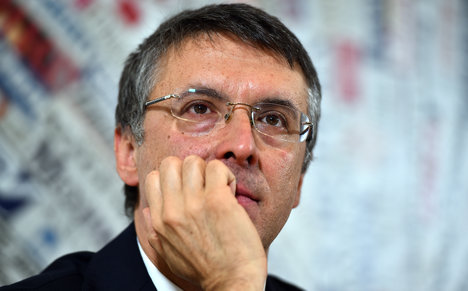Raffaele Cantone, head of the National Anti-Corruption Authority, said Italy's northern business hub Milan had “become the country's moral capital, while Rome has shown itself not to have the necessary antibodies”.
“In Rome we are doing everything we can, but what is lacking is the cooperation of all parts of the city's administration,” he said, as the capital tries to untangle a web of intrigue that ensnared its mayor two weeks ago.
Centre-left mayor Ignazio Marino, deemed honest but incompetent, was forced to stand down over an expenses row.
His supporters suspect a concerted smear campaign linked to Marino's role in exposing a criminal network run by a one-eyed mobster with links to the far right, which had infiltrated the municipal authority under his predecessor.
Police dismantled the “Mafia Capitale” network last year and dozens of local politicians and businessmen suspected of rigging tenders and siphoning off millions of euros destined for public services are due to go on trial next month.
Cantone's words sparked indignation from across the political spectrum, with critics both defending Rome's morals and scoffing at the idea that rival Milan is any better.



 Please whitelist us to continue reading.
Please whitelist us to continue reading.
Member comments